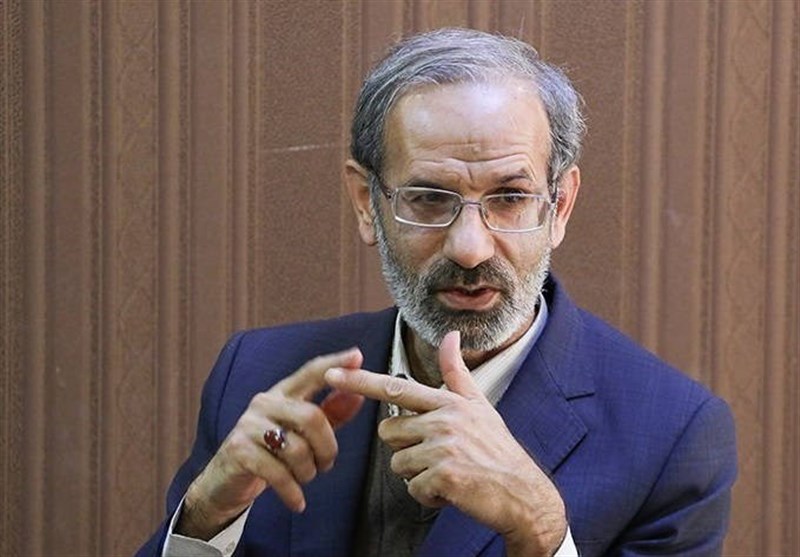Alwaght- Israeli regime assassinated Hezbollah Secretary-General Sayyed Hassan Nasrallah in a large-scale bombing of southern Lebanon on Friday. The attack unleashed regional and global popular and official outrage against Tel Aviv.
Tasnim news agency held an interview with Saadullah Zaree, an Iranian political affairs expert, asking him questions about the assassination operation. Alwaght presents a translation of this interview.
Zaree said that over the past two years, Israel has managed to technologically gain an upper hand which it used to locate its enemies. This issue happened in different parts of communication technologies, and the Israelis, assisted by the Americans, managed to secure positions for themselves in the communication system with a two-year planning and follow-up. Indeed, they made gains not absolutely but limitedly. For example, the Israelis failed to reach many Hezbollah cadres despite work with the Americans. Still, they managed to reach some military commanders of Hezbollah who had free time and used phones.
Pointing to the Israeli terrorist detonation of pagers in Lebanon two weeks ago, the senior analyst said that with pager explosions, the Israelis tried to cover up their technological and intelligence failure of October 7 since in that day, the Hamas fighters managed to penetrate the multi-layer security systems of Israel and 70 kilometers deep into the Israeli regime. So, by detonating the pagers on the eve of the October 7 anniversary, they tried to show off this level of penetration of the communication systems.
Zaree described the assassination operation of Hezbollah chief as being out of the equation of infiltration and communication systems, adding that when the Israelis despaired of access to Nasrallah, they bombed an area of Dhahiya (Suburb) containing 60 housing units located in the south of Beirut to make sure they hit him in one of them.
He described the Israeli account of Nasrallah's assassination as false, saying that indeed after the secretary-general was martyred, the Israelis claimed that they were somehow gained information on the location of Nasrallah, which was not true. They made such a lie to reverse their intelligence defeat.
Commenting on the assassination of Hezbollah's chief, Zaree said that while the Israelis knew how dangerous the consequences of this assassination would be for them and what reactions they would face from the Axis of Resistance, they felt the need to assassinate Sayyed Hassan Nasrallah. Listen to Netanyahu’s Congress speech where he said that "let's work hand in hand to change the current situation in the Middle East and change the situation that is not in our interest with cooperation." These are the same remarks that Netanyahu made in the Congress or in his recent speech at the United Nations General Assembly, presenting a map of the Resistance front and the region and saying that the threats posed by the Resistance front do not only concern Israel, but also they are threats which continue throughout the whole region.
He held that if we look at these words carefully, we can understand that the Israelis have felt that they need to turn the tide for Israel to continue to exist, and this takes assassinating the most prominent figure of the Axis of Resistance, namely Sayyed Hassan Nasrallah, hoping that with assassination of its chief and dealing next blows to it, Hezbollah will be knocked out of acting in the regional equations and then impose this condition on Syria and Iraq as influential branches of the Axis of Resistance.
Referring to the Israeli PM's remarks that Israel should go after others, Zaree said that these words of Netanyahu were to say that Tel Aviv needs to change the regional equations or that this change of equations is not limited to Lebanon, so the Israelis stepped in a broader conflict with the intention of changing the equations. But it can be seen from the behavior and words of Netanyahu and the members of the Israeli cabinet that they are heavily scared.
Zaree pointed to Netanyahu’s speech after assassination of Nasrallah, saying that Netanyahu raised three intentions behind this assassination. First, Israel wanted to send a message to Hamas leader Yahya Sinwar. Second, to release the Israeli prisoners. And third, to press Hezbollah to stop its strategy of displacing Israelis on north. Here it should be said that Netanyahu's two demands, namely Yahya Sanwar and the release of Israeli prisoners, are related to Gaza and have nothing to do with Lebanon. Regarding Lebanon, he raised a minimal demand that the Lebanese should agree not to fire at the northern regions of occupied territories and allow them return home. These show that the Israelis are in panic and are not sure that Israel can withstand the consequences of the assassination of Sayyed Hassan Nasrallah.
The political expert pointed to the meeting of the security cabinet of Israeli regime, holding that during the meeting it was said that Tel Aviv is on the eve of the October 7 anniversary. By showing off their power in Lebanon, the cabinet can convince the Jews that they made gains over the past year. This is while the developments in Lebanon are of the past 7 to 8 days. What about before these days? This means acknowledging the defeat. Well, will these 3 and 4 demands of the Israeli regime be met after the bombings of Lebanon? Will the civil composition in Gaza change? Will resistance in Gaza be quitted? Will the prisoners be released? It is clear that here the Israelis are bluffing and trying to feign gains for themselves. Certainly, in the coming days, the Israelis will understand how dangerous and unbearable the assassination of Sayyed Hassan Nasrallah will be for them.



























